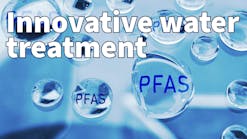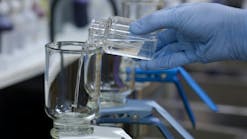LONDON, England - Cosmetic companies should be banned from using plastic microbeads in bathroom products - like exfoliating scrubs, toothpaste and shaving gel - because of the marine pollution they are causing, the cross-party Environmental Audit Committee has demanded.
It is estimated that as much as 86 tonnes of microplastics are released into the environment every year in the UK from facial exfoliants alone.
Microplastic pollution comes from the fragmentation of larger pieces of plastic waste, small synthetic fibres from clothing and the microbeads used in cosmetics and other products.
Many large cosmetics companies have made voluntary commitments to phase out microbeads by 2020.
For example, Unilever said it phased out plastic scrub beads from its personal care products by January 2015, instead using “suitable alternatives”.
Meanwhile, earlier this year research found that in the US microplastics were escaping wastewater treatment plant filters and ending up in rivers (read story).
However, the Committee found that a legislative ban would have advantages for consumers and the industry in terms of consistency, universality and confidence.
The Committee would like to see a national ban on microbeads by the end of 2017. A new report said that the industry is failing to label products containing microbeads clearly.
If the Government fails to introduce a ban, the Committee is calling on it to introduce a clear labelling scheme for microbeads during the transitional period of a voluntary phase out to provide transparency for customers.
Relatively little research has been done so far either on potential impacts to marine life, human health or the marine economy, the Committee said.
It is estimated that 15-51 trillion microplastic particles have accumulated in the ocean. Microplastics have been reported at the sea surface and on shorelines worldwide. They are also present in remote locations including deep sea sediments and in arctic sea ice.
Environmental Audit Committee Chair Mary Creagh MP, said: "Trillions of tiny pieces of plastic are accumulating in the world's oceans, lakes and estuaries, harming marine life and entering the food chain. The microbeads in scrubs, shower gels and toothpastes are an avoidable part of this plastic pollution problem. A single shower can result in 100,000 plastic particles entering the ocean. Cosmetic companies' voluntary approach to phasing out plastic microbeads simply won't wash. We need a full legal ban, preferably at an international level as pollution does not respect borders.
“If this isn't possible after our vote to leave the EU, then the Government should introduce a national ban. The best way to reduce this pollution is to prevent plastic being flushed into the sea in the first place.”
###
Read more
Wastewater treatment plants significant source of microplastics in rivers



